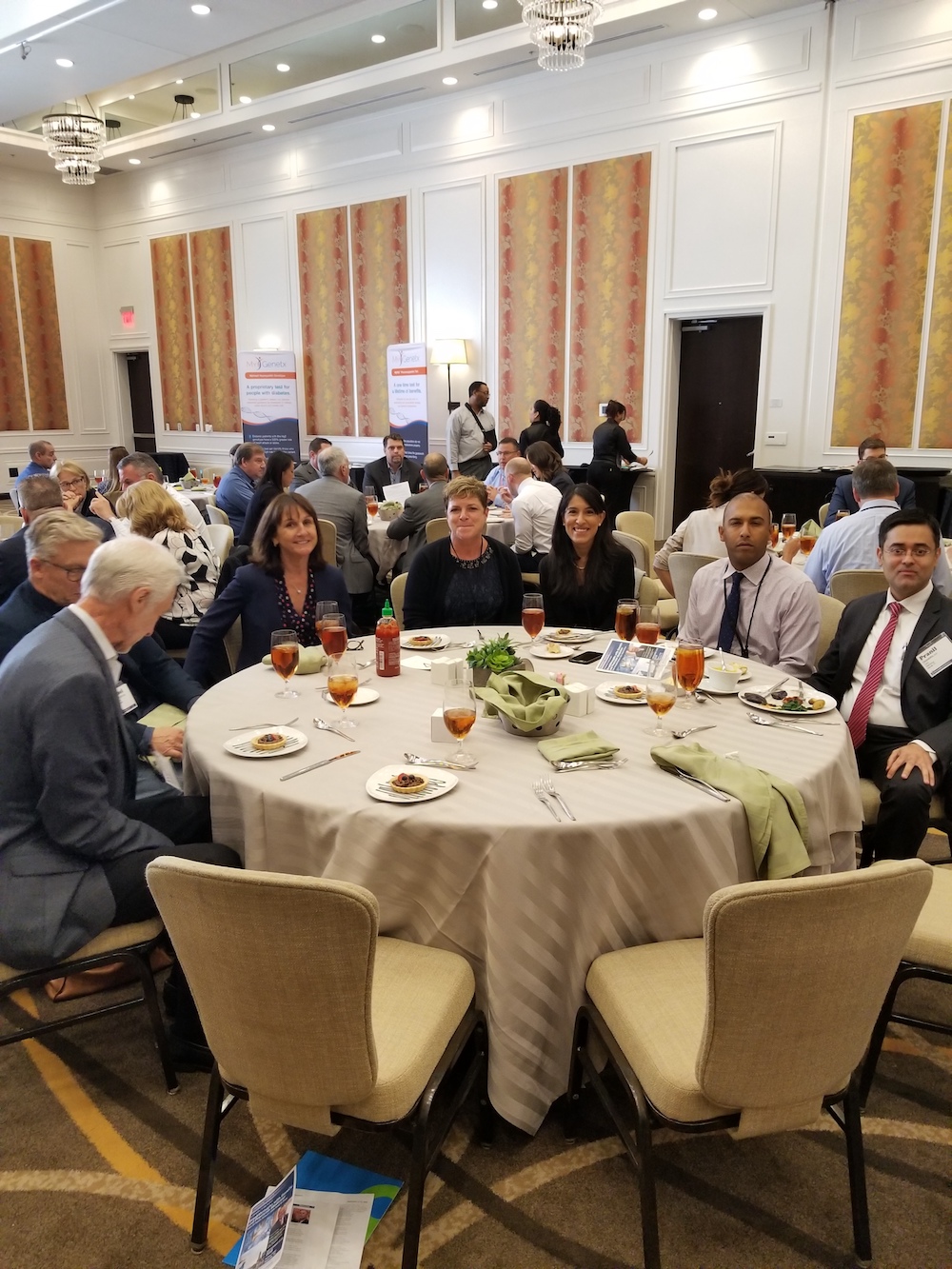Report: Precision Medicine Institute Meeting
We are back from and have had time to digest the amazing about of information exchanged at last week’s Precision Medicine Institute convention on September 12 and 13 in Nashville. We were so enthused by the topic and the people putting it on, that we signed up early as sponsors.
I explained the importance of such a conference in my last blog, and while all of us at U.S. HealthTek are busy following up on everything that happened there, I wanted to give a brief report on the happenings.

Dinner at the conference with fascinating colleagues.
It was a good conference that was extremely well-attended. That’s impressive, especially considering it was the first one held by our industry. It certainly exceeded everyone’s expectations. One of my biggest takeaways from the conference is that now that we have the human gene sequenced, we need to use the data to understand the relationship between a human gene and medication efficacy. We were told that 50 percent of prescribed meds are not effective and that there are hundreds of thousands of deaths each year from prescriptions that cause bad reactions in patients.
So it’s a serious topic, and one I believe our industry needs to step up for, because there is no question that data plays a big part in the equation. Yet the volume of data is huge and is far from being fully mined. We knew this going in, but it was made all the more clear in the seminars and talks by day, and from the conversations had by the professionals who gathered there by night. The researchers need the data in order to do the studies that change the way medicine is practiced. When a doctor is going to prescribe a drug, knowing how it will react with the person by looking at their genes before he/she prescribes it could potentially save thousands of lives.
Another challenge is how do you get this data to all the physicians at the time they are prescribing? The medical industry is already challenged to deliver basic info like getting the patients’ full medical records to the doctor efficiently and accurately … so it can all be overwhelming, but that doesn’t mean we can shirk from the enormity of the responsibility.
Then there are the legal challenges which, in the general field of genetic engineering, are already well-documented. If a doctor has access to a patient’s gene sequencing data, is he/she bound by law to use the information in advance of treatment? Think about 23 and Me and ancestry.com; people get this sequencing done now and the usage is growing. If the patient wants it included in their patient record, what is a doctor supposed to do with it? They already have issues remembering all the potential gene/drug interactions.
It’s a lot to shoulder, but it’s where medicine is going, and we are excited to be part of this new field.
 On a personal note, we were glad to get some time to sit down with the Dark Report’s Robert Michel and exchanges thoughts and observations on our industry as a whole, and we’re looking forward to doing more together. Otherwise, everyone there was friendly and incredibly engaged. We look forward to another such conference on this extremely important topic happening again. You can bet we will be there.
On a personal note, we were glad to get some time to sit down with the Dark Report’s Robert Michel and exchanges thoughts and observations on our industry as a whole, and we’re looking forward to doing more together. Otherwise, everyone there was friendly and incredibly engaged. We look forward to another such conference on this extremely important topic happening again. You can bet we will be there.

